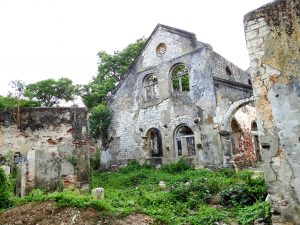The U.N. human rights office on Wednesday published a report raising new concerns about Sri Lanka, urging “international action” against alleged perpetrators of rights violations and floating the prospect of a referral to the International Criminal Court.
The report — news of which had already leaked in Sri Lanka — pointed to “worrying trends” over the last year, more than a decade after the end of a civil war that lasted 26 years and left tens of thousands of people dead.
“Sri Lanka’s current trajectory sets the scene for the recurrence of the policies and practices that gave rise to grave human rights violations,” the report said.
The rights office said the appointment to key administrative posts of senior military officials implicated in previous United Nations reports about war crimes in Sri Lanka was “particularly troubling.”
It warned of the encroachment of military leaders into roles that have traditionally been held by civilians and cited “a pattern of intensified surveillance and harassment of civil society organizations, human rights defenders and victims.”
The U.N. rights chief, Michelle Bachelet, faulted the government’s “demonstrated inability and unwillingness” to improve accountability, saying: “It is time for international action to ensure justice for international crimes.”
The report said countries can take steps “toward the referral of the situation in Sri Lanka to the International Criminal Court,” and could investigate and persecute violations of international law under “accepted principles of extraterritorial or universal jurisdiction.”
Bachelet said Sri Lanka’s contributions to U.N. peacekeeping operations — which totaled 655 people as of December, according to the peacekeeping office — must be kept under review.
In the wake of news reports in Sri Lanka about the U.N. report, a government spokesman, Keheliya Rambukwella, said Tuesday that it reserves the right to accept or reject the report. It is expected to come up on February 24 in the next session of the U.N.-backed Human Rights Council.
John Fisher, Geneva director for Human Rights Watch, said the report “lays bare Sri Lanka’s record of complete impunity for appalling crimes under international law, and the very alarming developments under the current government.”
The report could stoke tensions between the Sri Lankan government under President Gotabaya Rajapaksa and U.N. institutions. In May, Rajapaksa vowed Sri Lanka would withdraw from any international organization that continuously “targets” the military with allegations of human rights violations during its civil war.
The Sri Lankan government bristled last March after the rights council, which brings together 47 member states, passed a resolution that pledged to investigate allegations of human rights violations on both sides in the civil war.
Initial U.N. estimates said some 100,000 people were killed in the conflict between the government and ethnic Tamil rebels, though U.N. experts say about 40,000 Tamil civilians may have been killed in the final months alone.
Reporting by Jamey Keaten for the Associated Press, from Geneva, Switzerland, and Krishan Francis from Colombo, Sri Lanka.

































